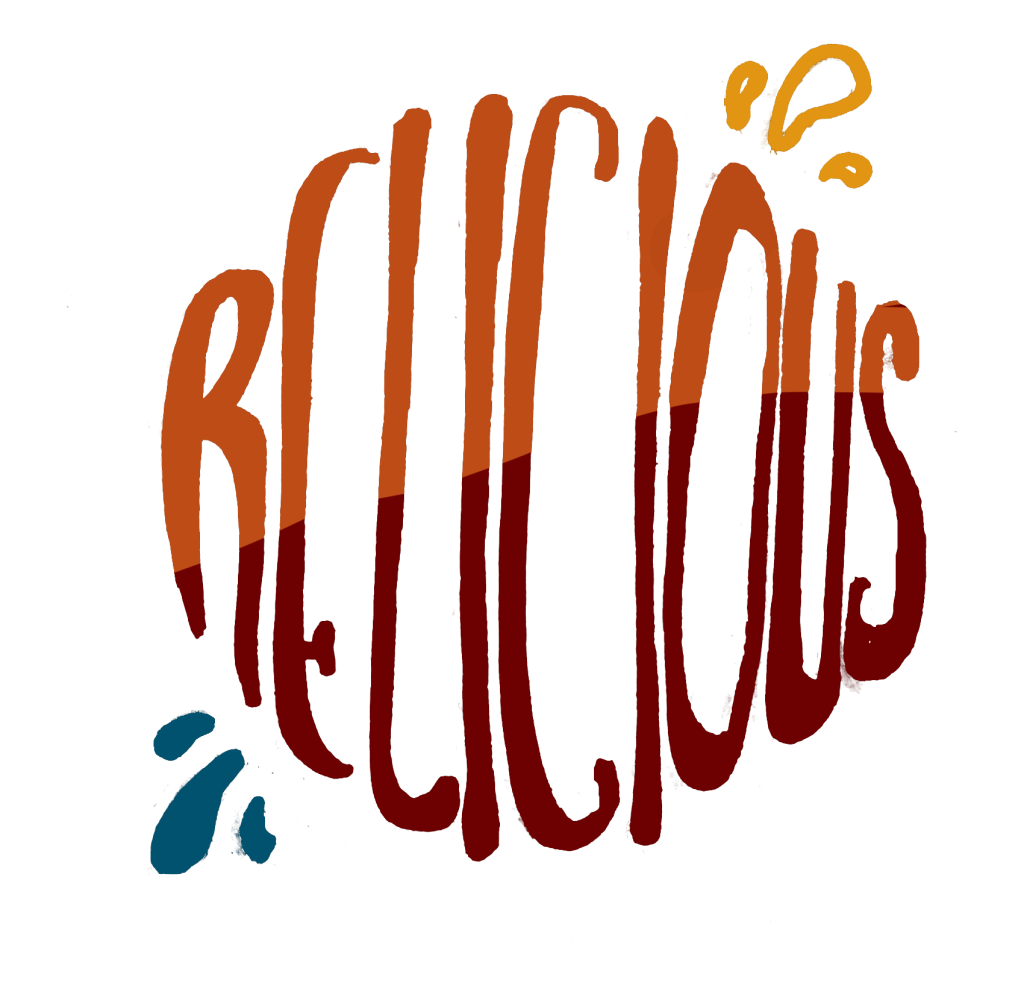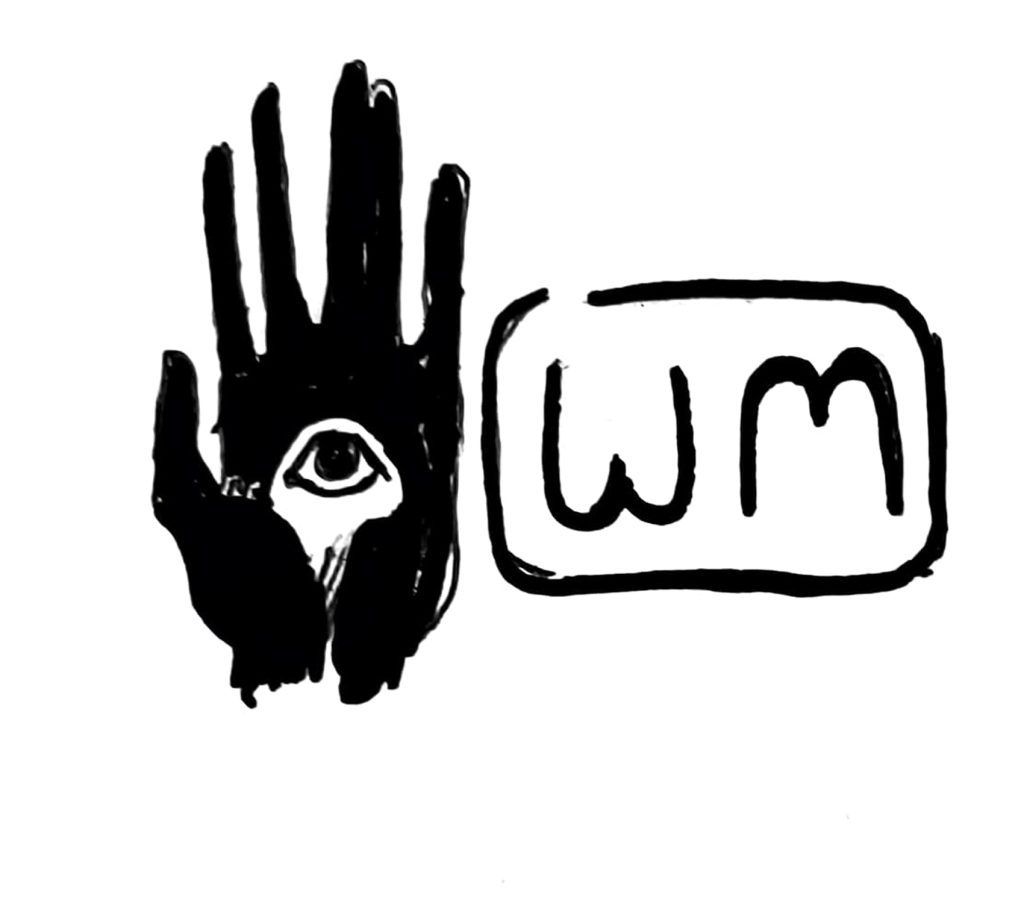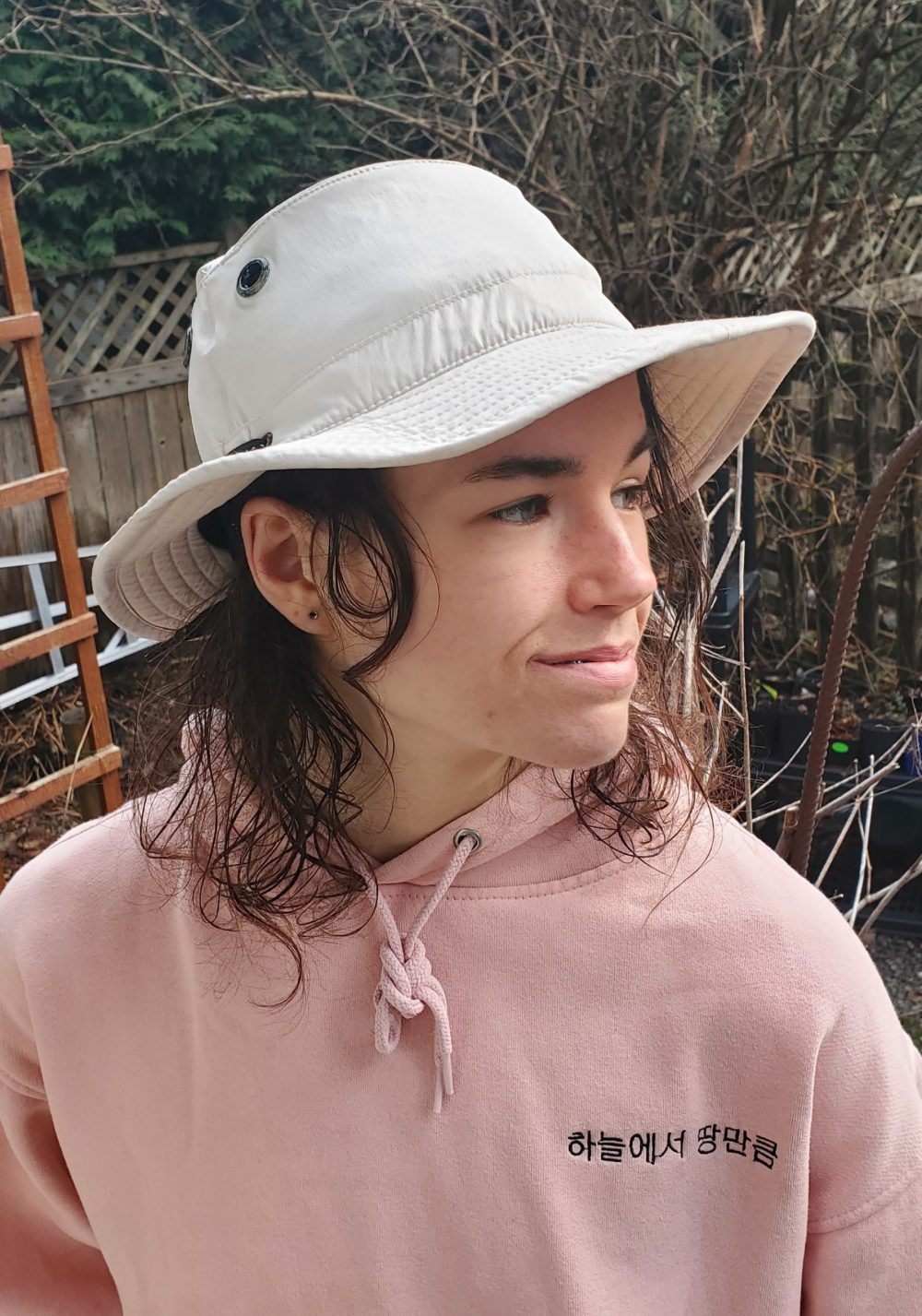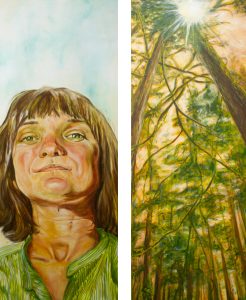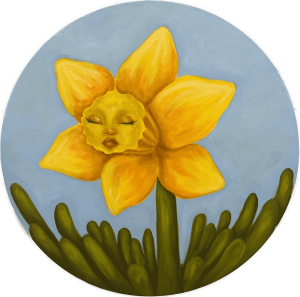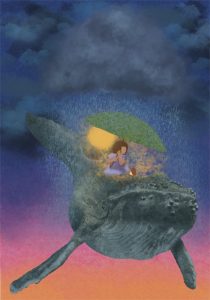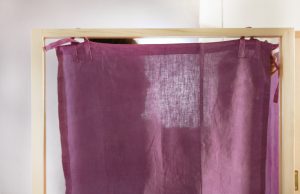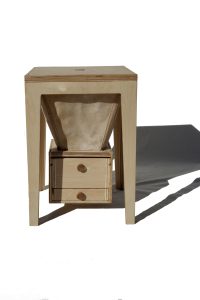The Relicious Project
Wylde Marsh
See it On Campus: Level 2
Visitor InfoTo the left of the main Cafeteria area, in the Student's Union Lounge area in front of the windows over-looking the North Shore mountains.
ECU Award Recipient
Ecological Design Graduation Award – Winner
Serving-it-forward to the Emily Carr Community with disregarded delicious + food-based socialization.
The three primary aims of the Relicious project are:
} to combat food waste disregarded food,
} support the population of Emily Carr
} to practice community through the ideology of paying it forward.

During a 2023 exchange in Denmark, I experienced
1. tremendous kindness from strangers who expected nothing in return but asked me to pay it forward +
2. the reality of sustaining myself almost totally on dumpster dived food in a country considered environmentally progressive1.
Relicious is the exploration of serving Emily Carr—as my home of the past four years—with the same kindness I received in unfamiliar lands, paralleled by addressing issues of local disregarded food. The journey has so far manifested in the systems/infrastructural design for a community fridge, pantry + social space (the Relicious Community Unit) and a series of accompanying workshops + outreach.
This project is intended to outlast any one individual: to support the larger network of ongoing efforts towards making Emily Carr a place people can feel at home in. In its first phase, this is through the creation of the community pantry now residing in the Emily Carr student union lounge, outlining the systems which will ensure it’s longevity + a phased plan for further implementation. The broader vision includes connecting the Emily Carr community with it’s surrounding area and people, nourishing food security, skills + learning within the university context and beyond.

Food Waste Disregarded Food
Every person in North America on average wastes 160lbs of food a year. To put it in the words of Carla Pellegrini from Foodstash: “That’s a whole person worth of food a year”. I found this in Denmark and in Vancouver, the only difference being that it was much harder to access this resource on an Individual basis in Vancouver.
Relicious began here: as a guerilla expedition to recover disregard resources, including food. Much of the early fall was spent investigating the alleys of Main Street; either spooking unassuming employees or, more often, having frank and interesting conversations with locals and business owners after explaining my presence in the vicinity of their garbage. At first this inspired an individualistic approach to shifting perspectives on renewing resources: creating a DIY tool kit to assist urban foragers-of curiosity or necessity. This was based on my experiences of trawling for materials/food in the urban environment and aimed to address safety, accessibility, and social perceptions of this activity.

Meet the Urban Trawl Kit: 001 (Suit) + 002 (Hip Pack) with an accompanying guide outlining patterns + methods for making/editing a trawling tool kit.
To make a trawler comfortable, and visible/invisible as they choose while recovering urban materials. The urban trawl guide was to be distributed through existing little libraries or neighborhood resource sharing areas.
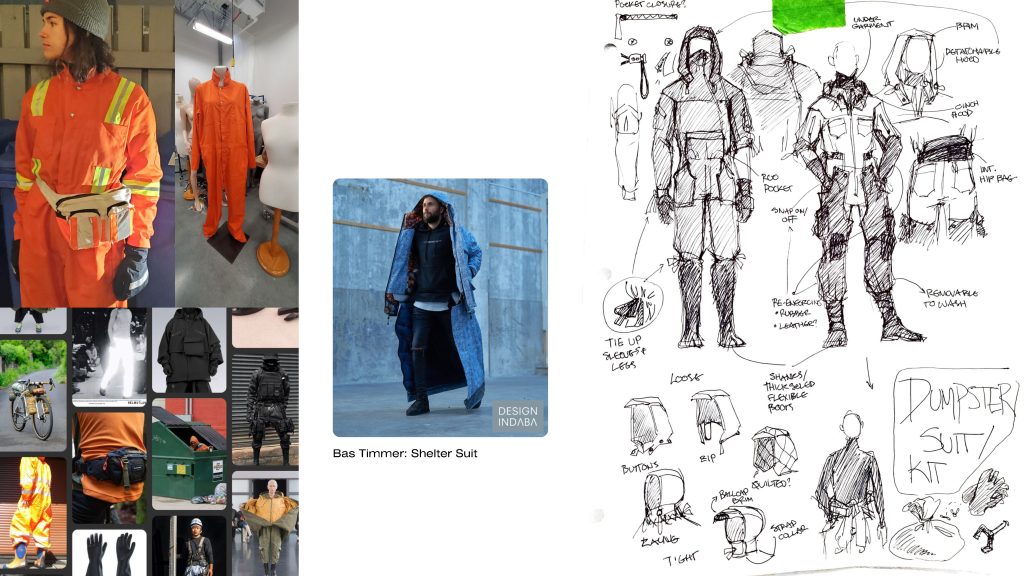
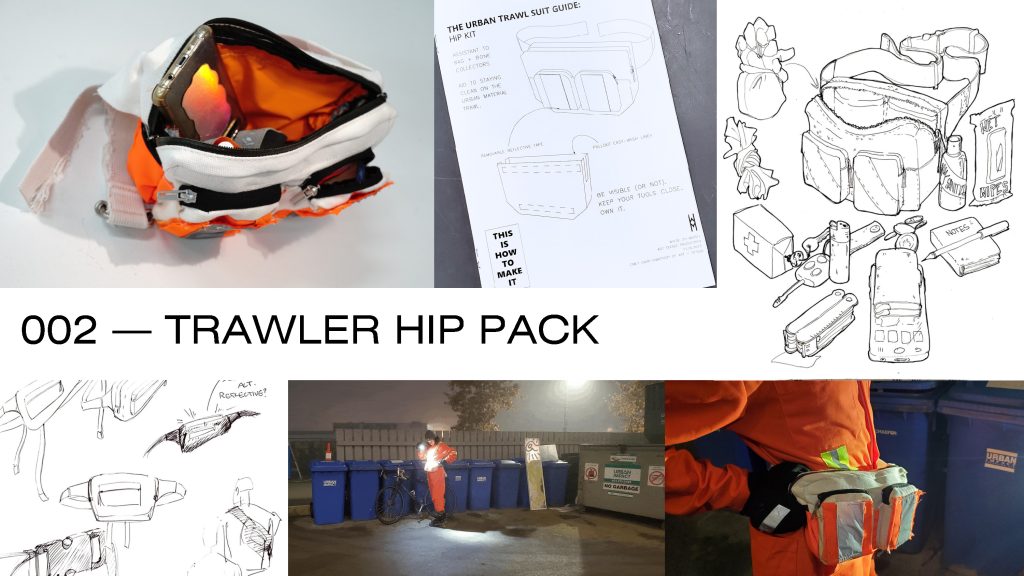
Through these local explorations and the realization that it was far less than easy to find viable food on one’s own in Vancouver, I became aware of local organizations working to prevent this food going to the bins in the first place. The closest and most unique of these was Foodstash: a small organization largely run by volunteers, striving to make disregarded food an accessible and viable option for everyone.
Their ideology is that disregarded food is a valuable resource, not a last resort, and that there is enough of it to address severe food insecurity as well as the needs of folks who are more stable. Their markets and community fridge provide the means of redistributing this food without judgement or barriers which I was searching for in this project.

From Foodstash came a movement towards systems: creating both the broader structure and infrastructures needed to help people access the vast resource which is disregarded food while shifting hesitations about utilizing it. The Urban Trawl suit + tool kit has an eventual place in this system as a means of skill sharing but is no longer the primary artefact.
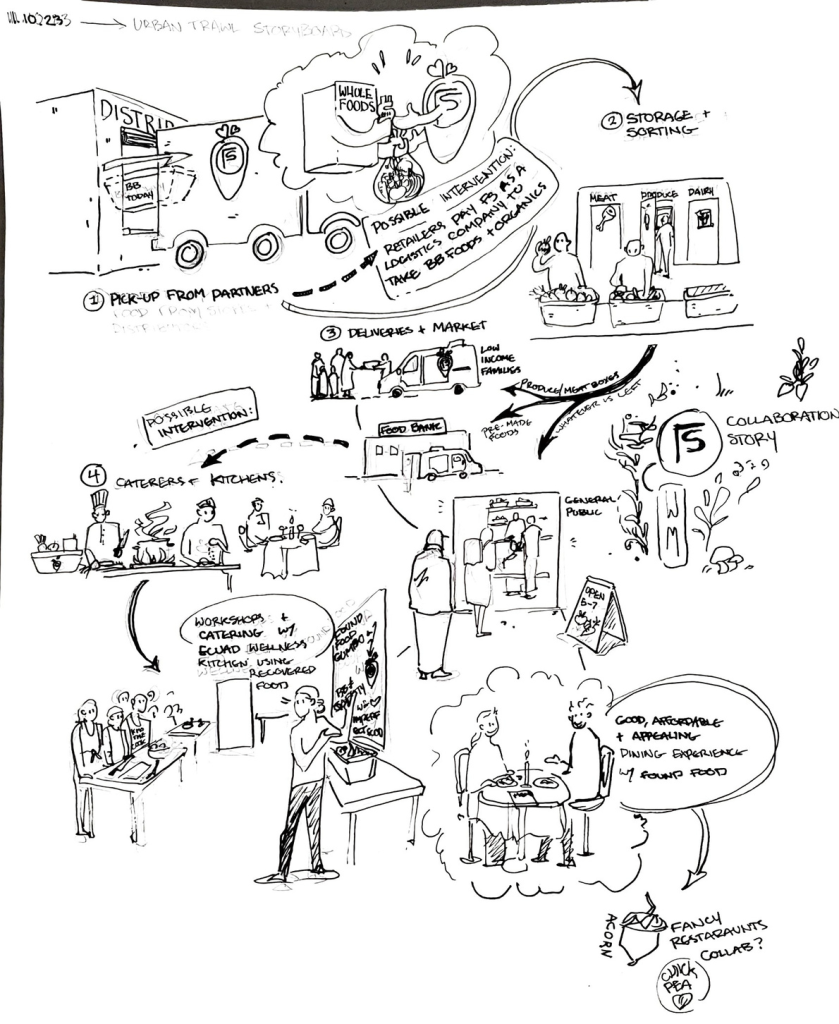
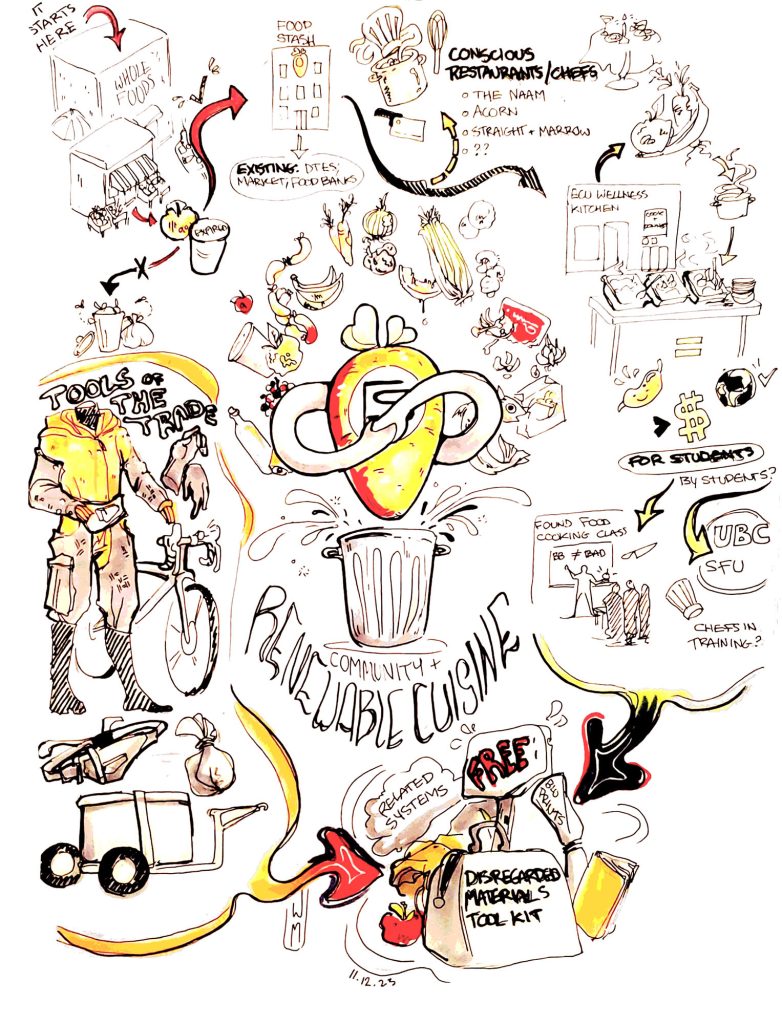
CULINARY IMPROVE
After speaking to representatives of Foodstash and others working in the realm of community design at Emily Carr, I began laying the plans for a series of workshops to inform and empower my community around disregarded food.

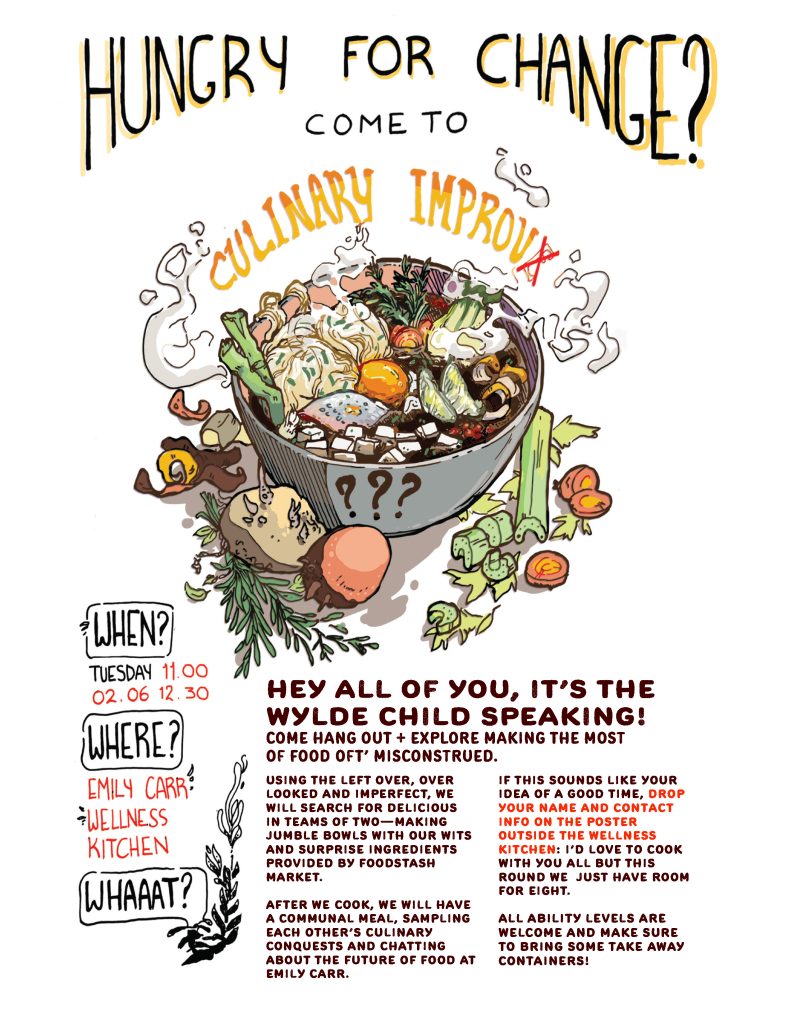
The first of these workshops took the form of Culinary Improv. Based on existing student culinary skill-shares being offered through the Emily Carr Wellness kitchen, participants were divided into teams and given surprise ingredients (even I didn’t know what we would be cooking with until the morning of the workshop). Each team used their protein and produce—all donated by Foodstash—with a sheet of basic flavor combinations, sauce recommendations + tips and tricks for “Jumble Bowls”(see below).
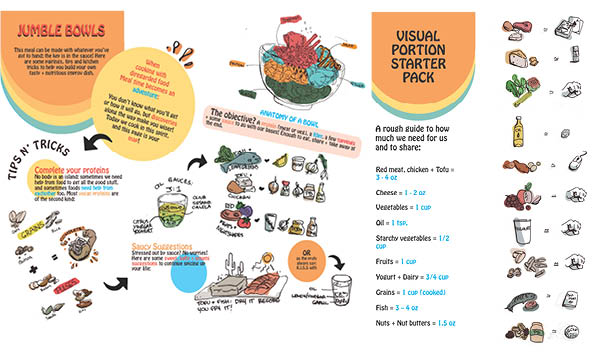
I wasn’t exactly sure what to expect, never having run a workshop before, but once everyone was teamed up + had a chance to get around using cooking things flowed. It was also a chance to share information about Foodstash with students and faculty, and I heard interesting feedback from participants about their views on eating disregarded food. Someone related that their parents dumpster diving groceries had been a regular part of their growing up, another told me how having so much food that it often had to be thrown out was a sign of wealth in their family. Everyone finished the afternoon with a delicious dish to share and there was even enough for people to take home both leftovers and some groceries.

The creativity displayed by participants and the pleasure of seeing people happily leaving with their groceries inspired the next steps of Relicious. My intention with this project has primarily been being of service, but I wanted to create a long-lasting material outcome to accompany this service. The organizational possibilities of Foodstash and the joy of this workshop inspired the final form of this material outcome: the Relicious Community Fridge and Unit.
STUDIO SNAX
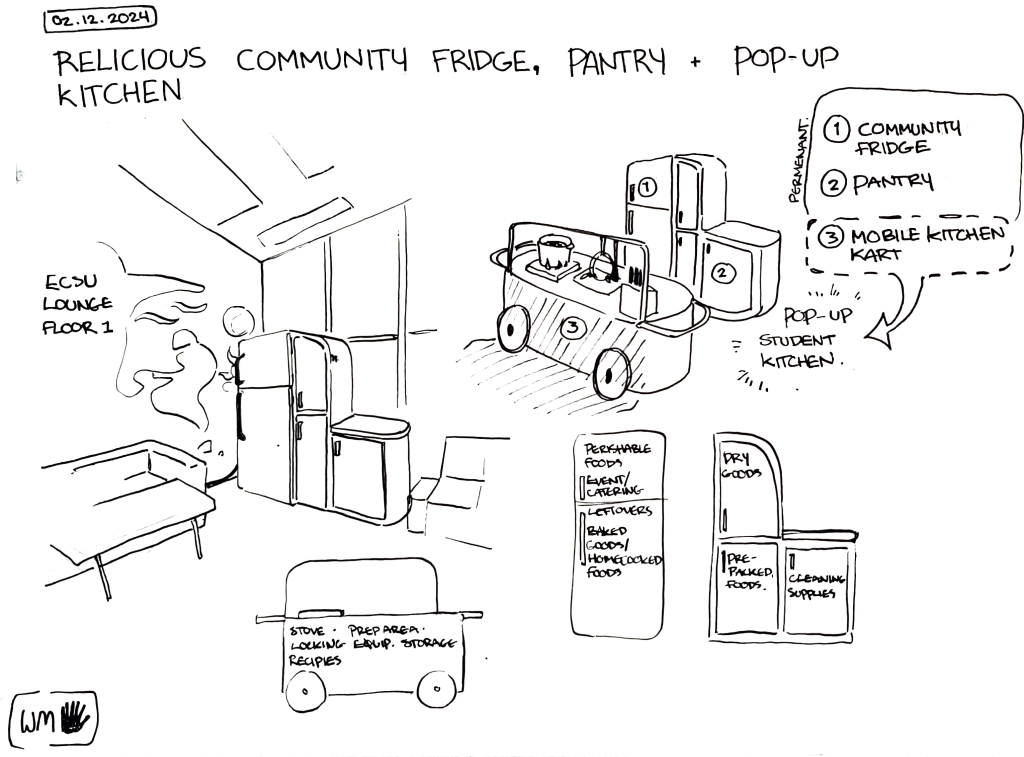
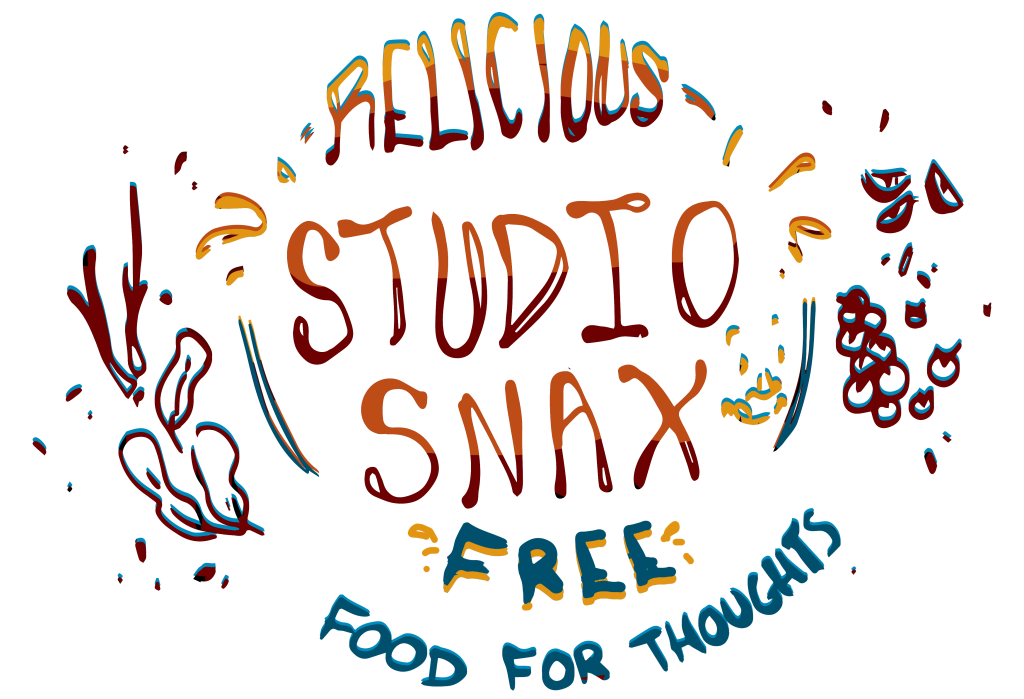
Before the planning for the community fridge began in earnest, I wanted to investigate what the students the cabinet was meant to serve thought about both disregarded food and the project. Thus, Studio Snax was born. For the five weeks running up to the creation of the cabinet, I set up in front of the ECUAD library with materials from my project, a sheet for people to add their vision of the community unit, and snack food which I made in the mornings from disregarded food I picked up the night previous from local businesses + bakeries.

A weekly instagram post with details about the pop ups kept me in communication with the people who dropped by. The response to having a community fridge on campus was almost universally positive, with some helpful feedback about possible sticking points when presenting the project to ECUAD administrators. I was pleased to see that teachers, students and people from outside the school were all happy to drop by and share a few thoughts while enjoying their food. Once the word got out a little, it was great to see the regulars coming by week after week.
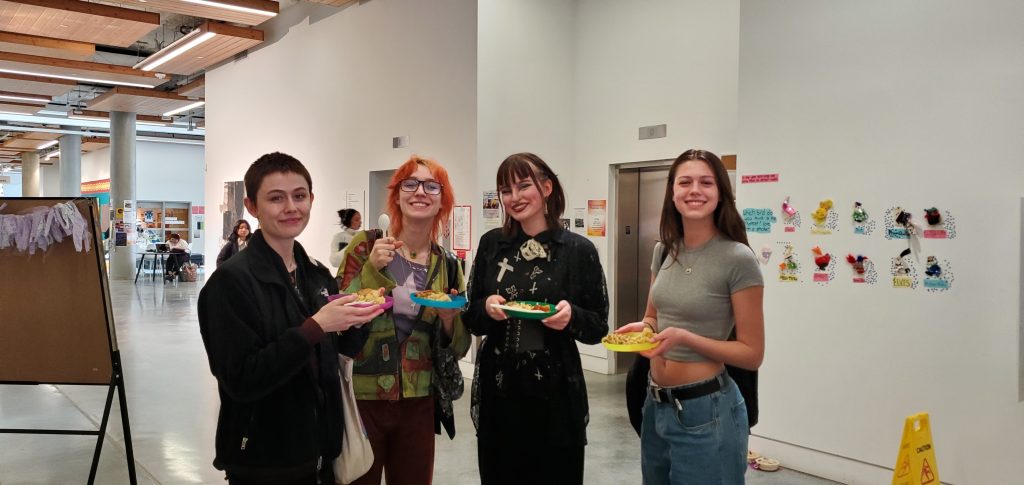
This was one of the highlights of the project personally. I met more people from different areas of the school than I had in the past three years together, and it was satisfying to be able to share what I had made with others. During the final session, I collected the recipes people seemed to have enjoyed the most and printed sheets for people to take home.
Thank you to everyone who shared their thoughts, enjoyed some snax and came by week after week. I wish you the best in your remaining Emily Carr journeys!
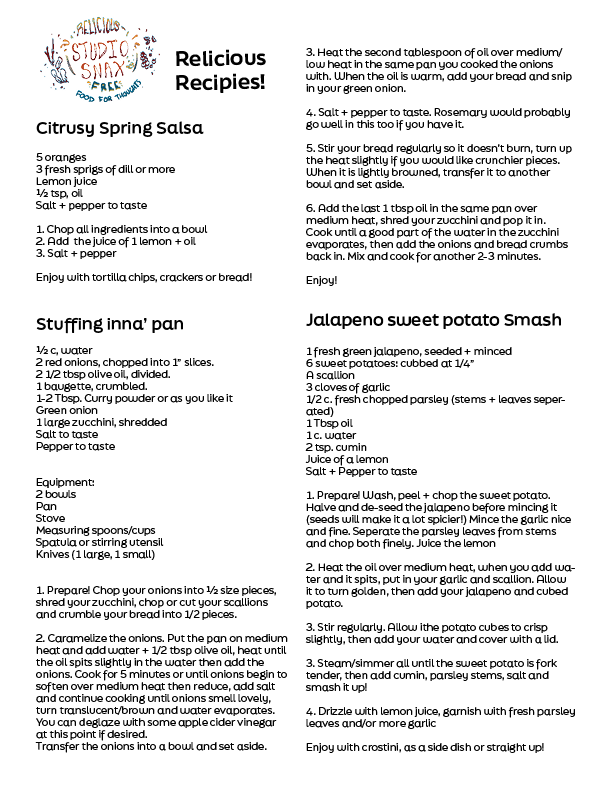
THE RELICIOUS COMMUNITY UNIT
Alongside Studio Snax, the cabinet began coming to life. After some meetings it became apparent that the fridge was likely not going to be part of the project’s phase 1 and the focus turned to creating the pantry. Early on I decided I wanted to create it from scratch, using as many re-used material parts as possible. This was, of course, much more time intensive than I anticipated, and would have been impossible without the help of the fantastic woodshop technicians, my friends in the studio and m’dear old man.

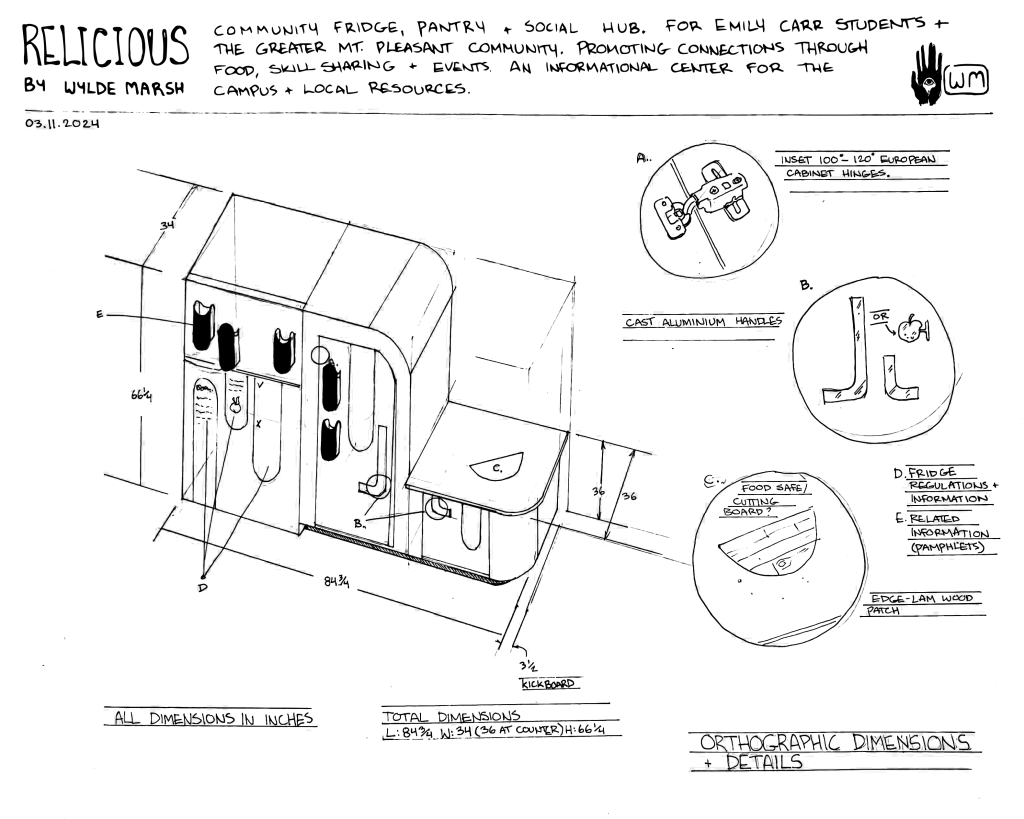
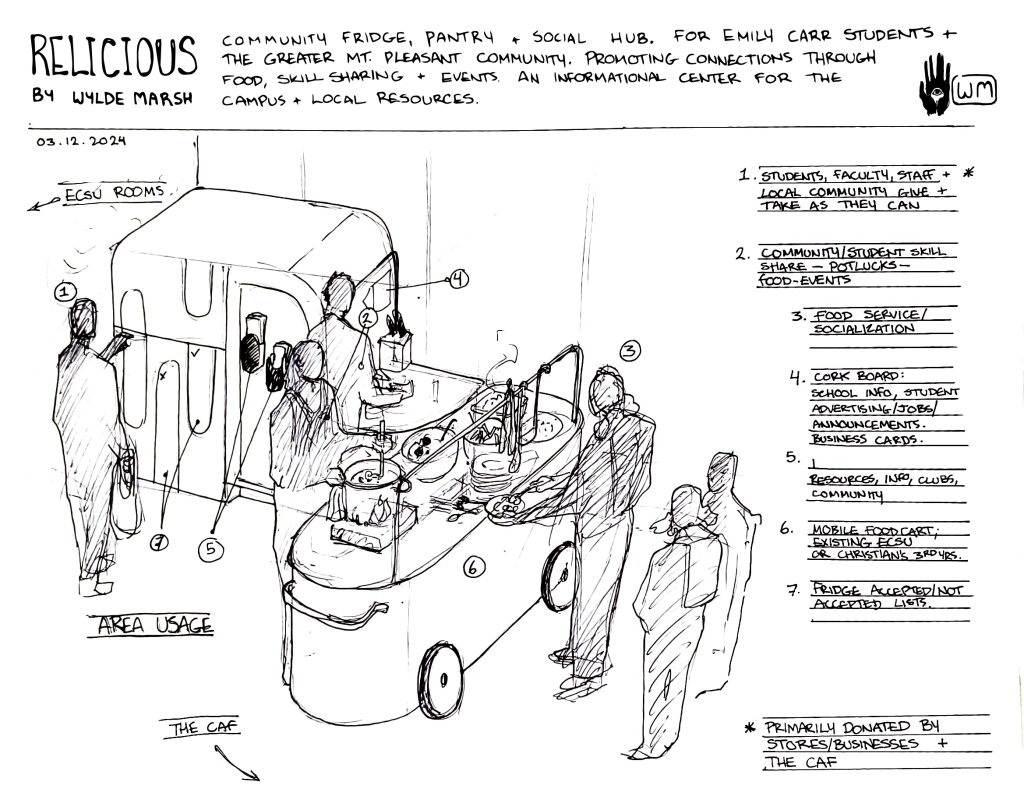
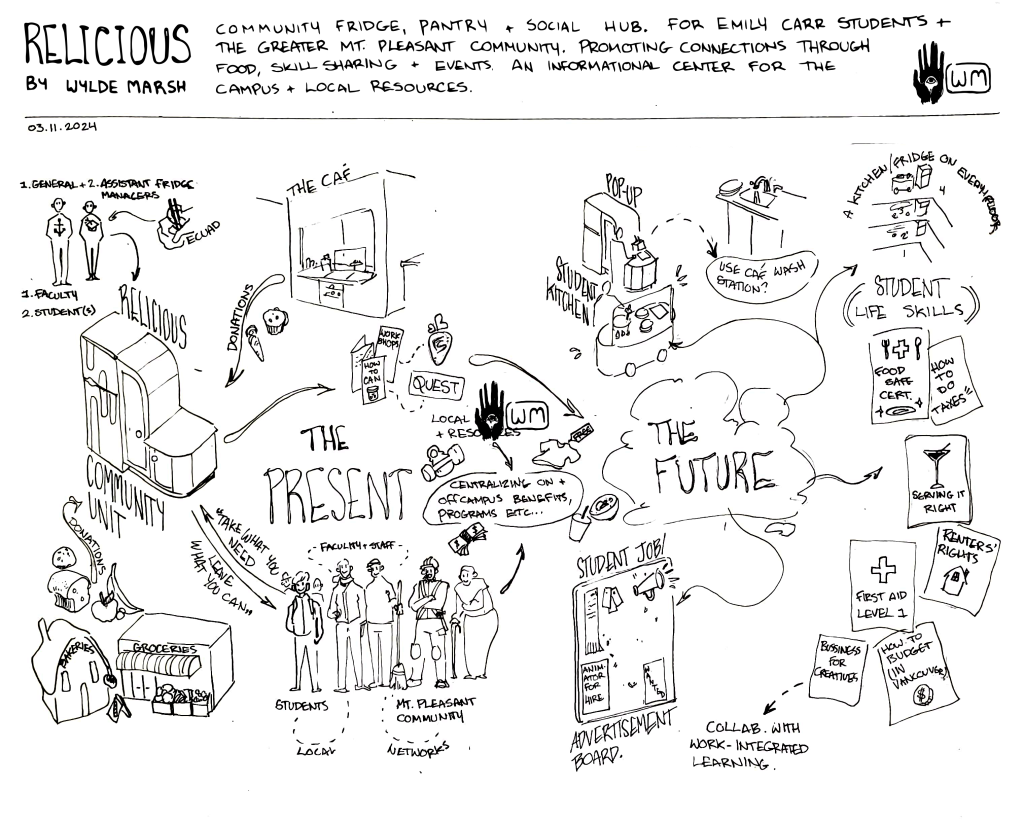
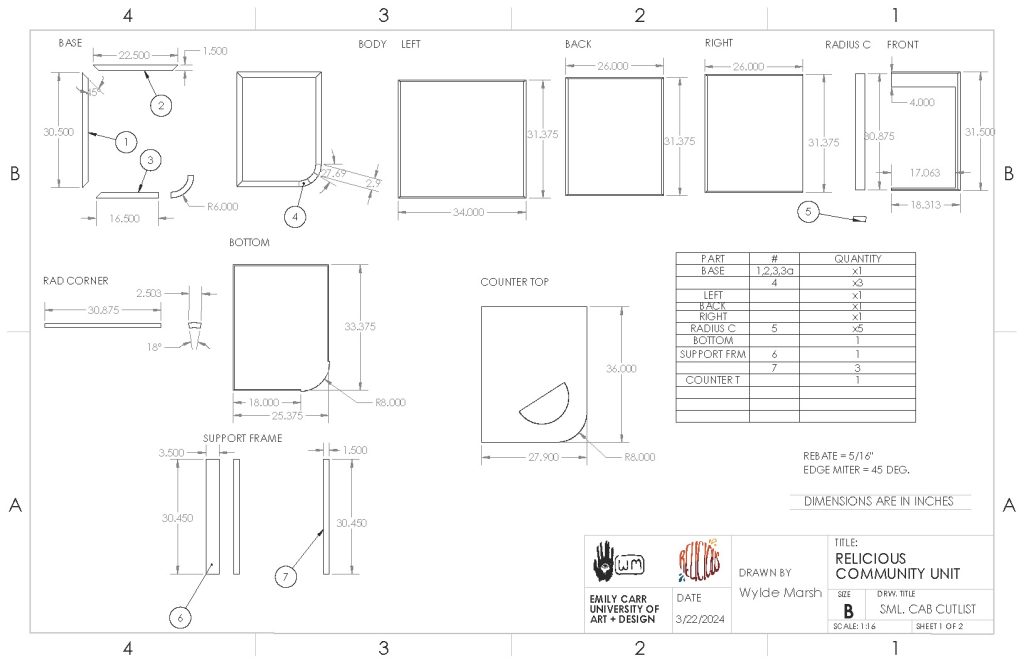
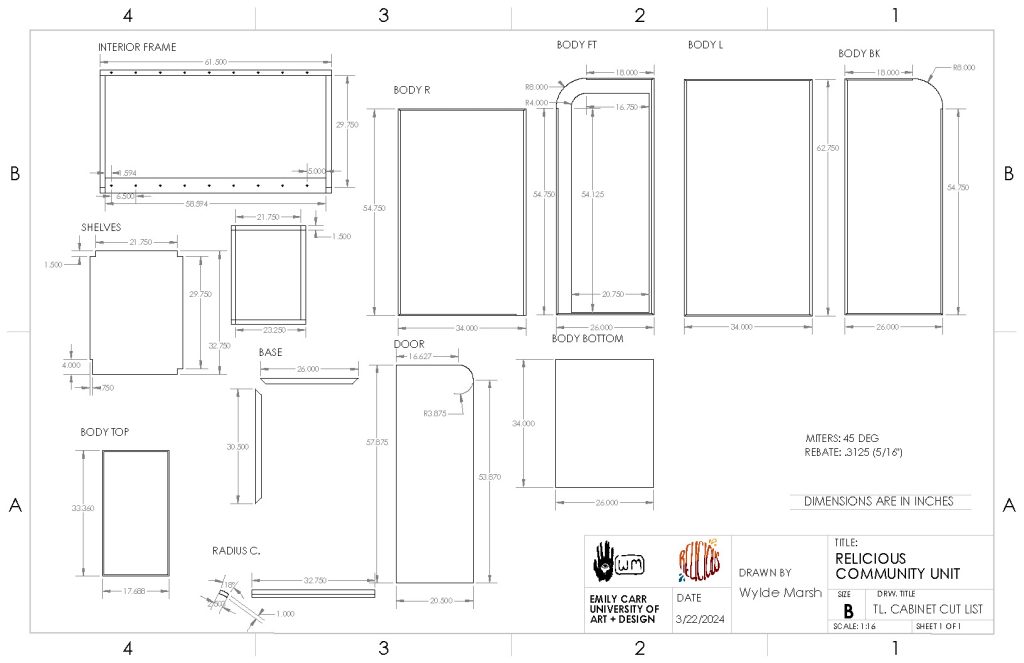
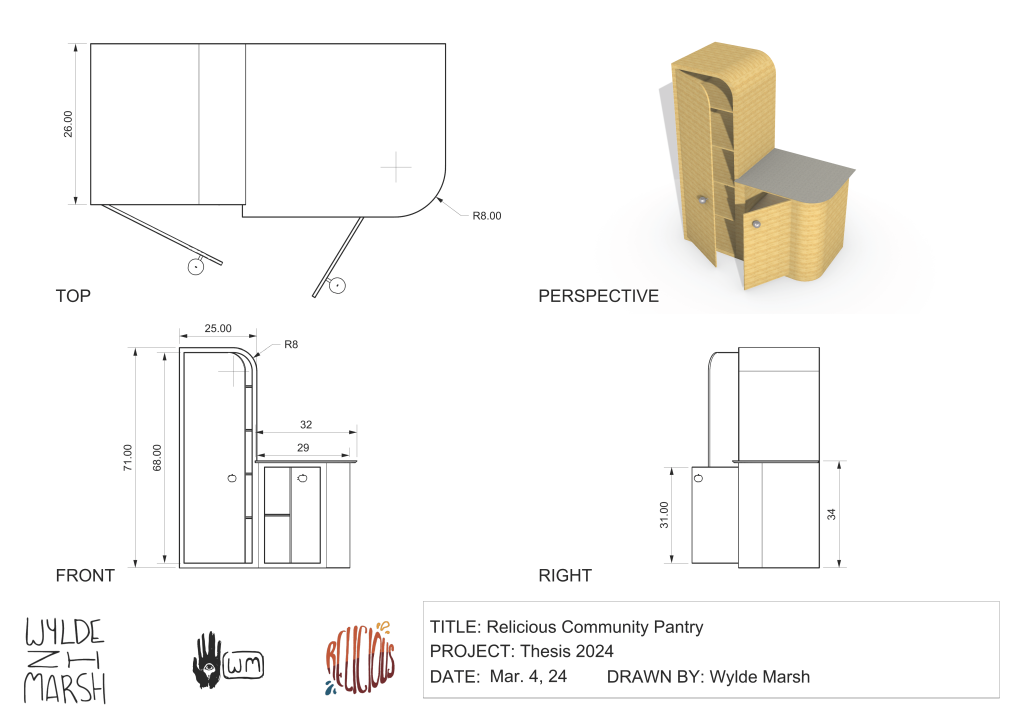
After what felt like an eternity staring at a computer screen and trying to remember to save out of Solidworks every five minutes, I had some drawings and a vague idea of where to begin. The cabinet was to be made of recovered materials as much as possible. I was able to make it of 90% reused plywood, dimensional lumber and solid wood from the woodshop, Facebook marketplace, or left overs from other student’s projects. I used edge lamination to make larger sheets of ply where needed and the rounded fir corner pieces. Everything else can be fully disassembled and repurposed or recycled.
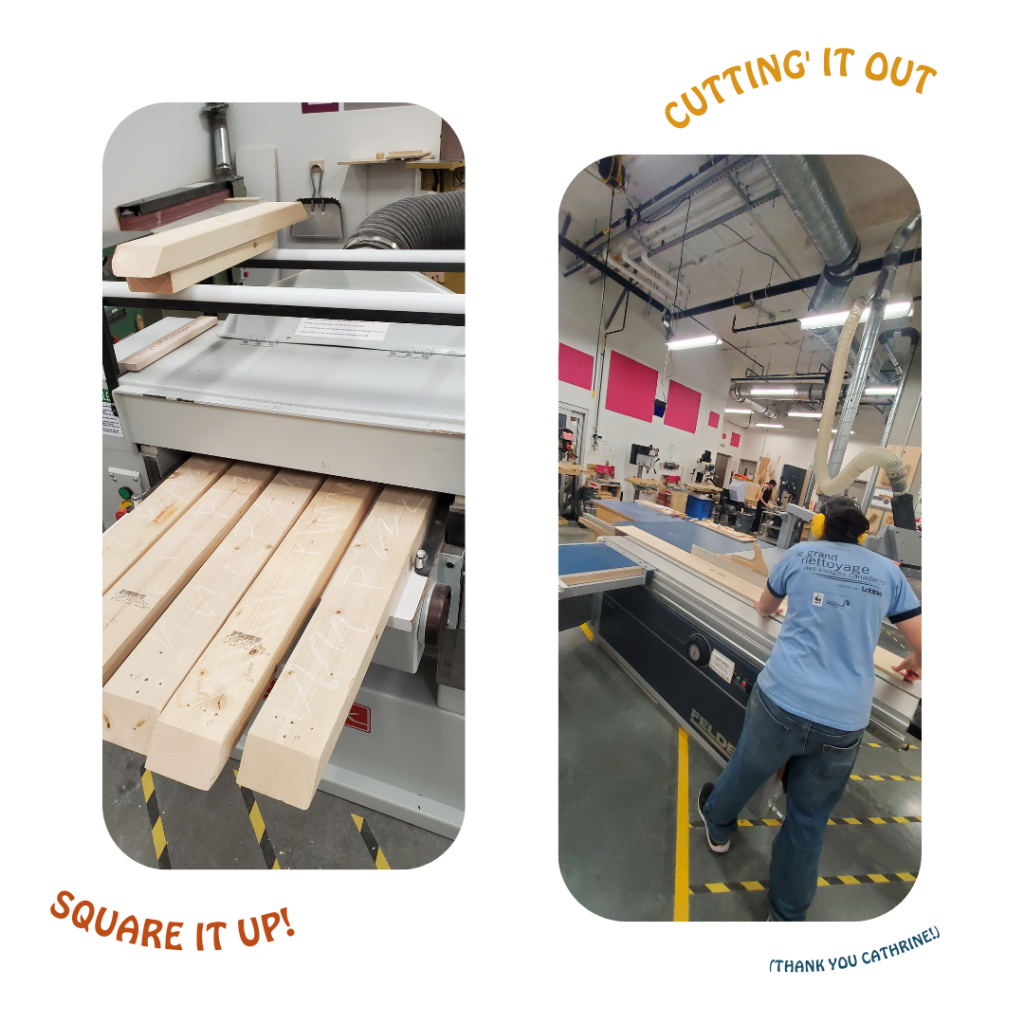

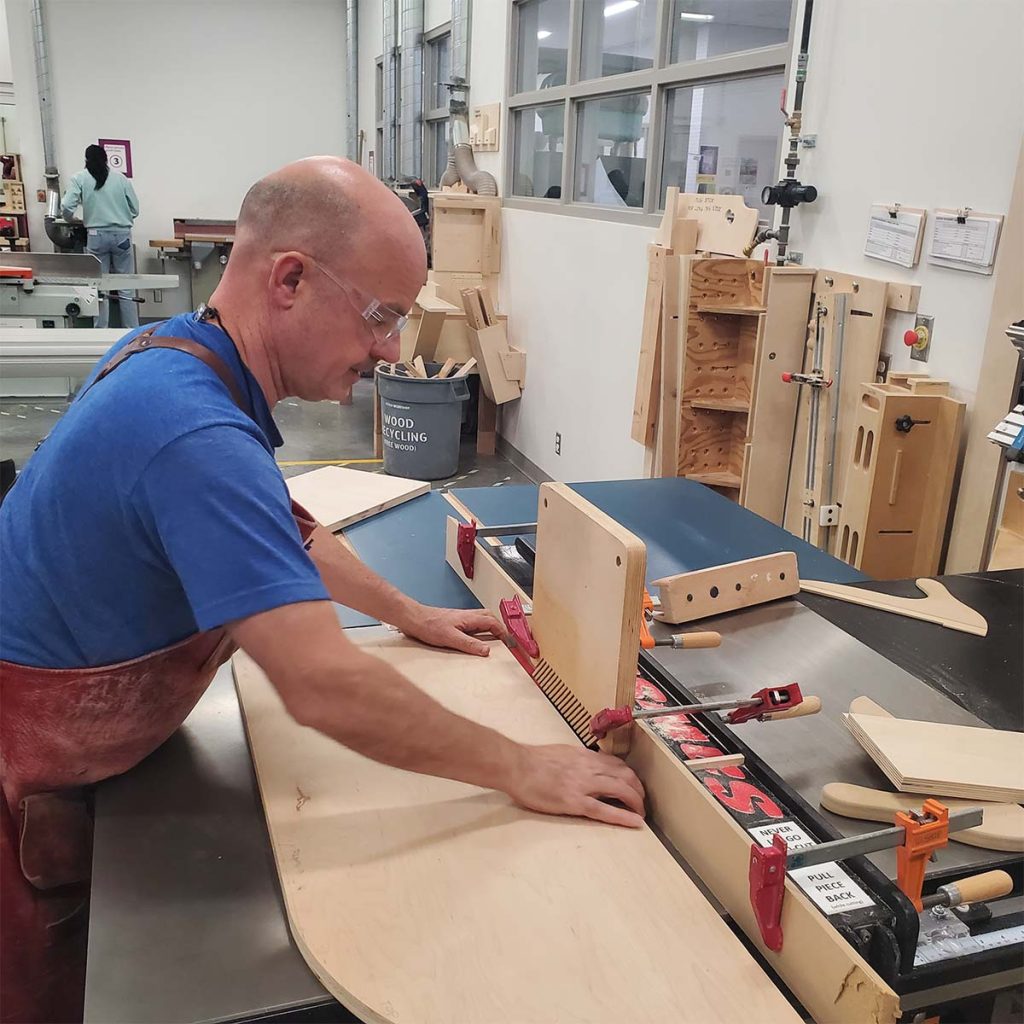
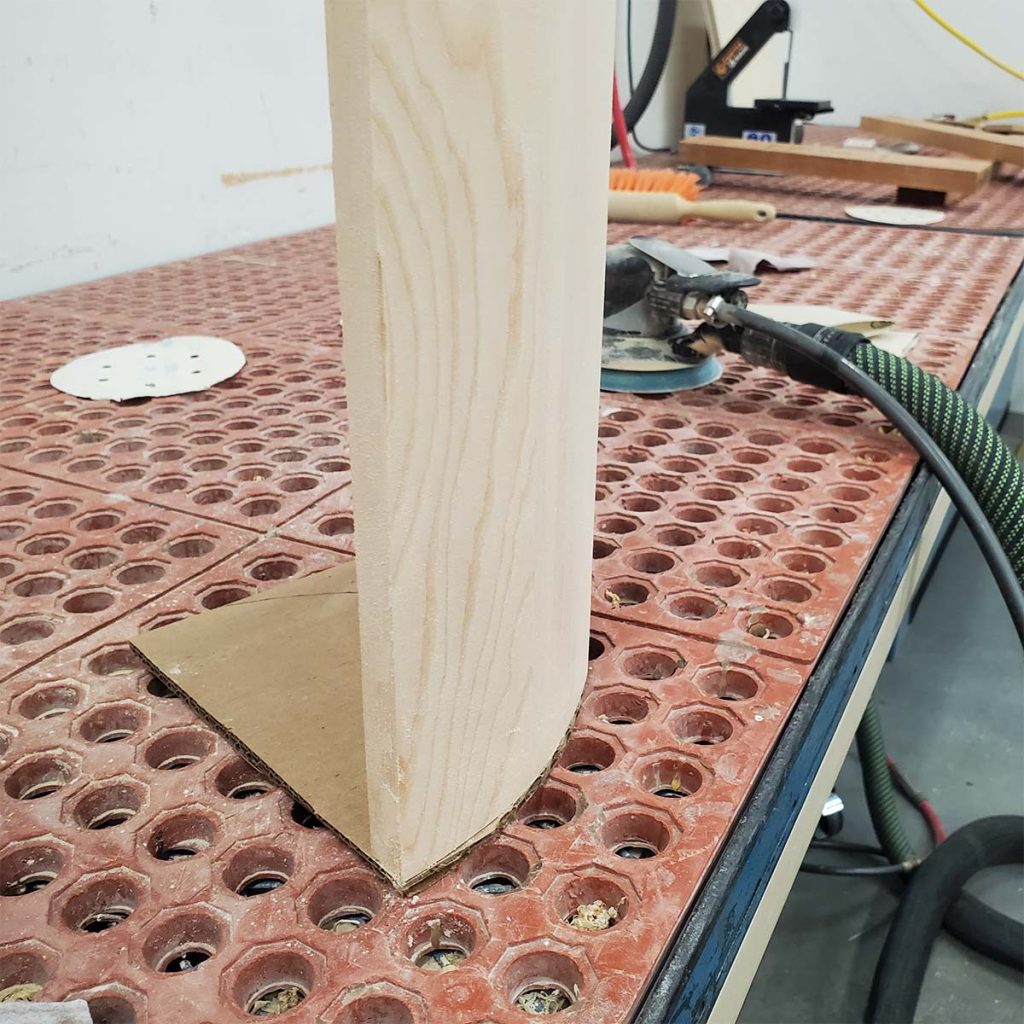
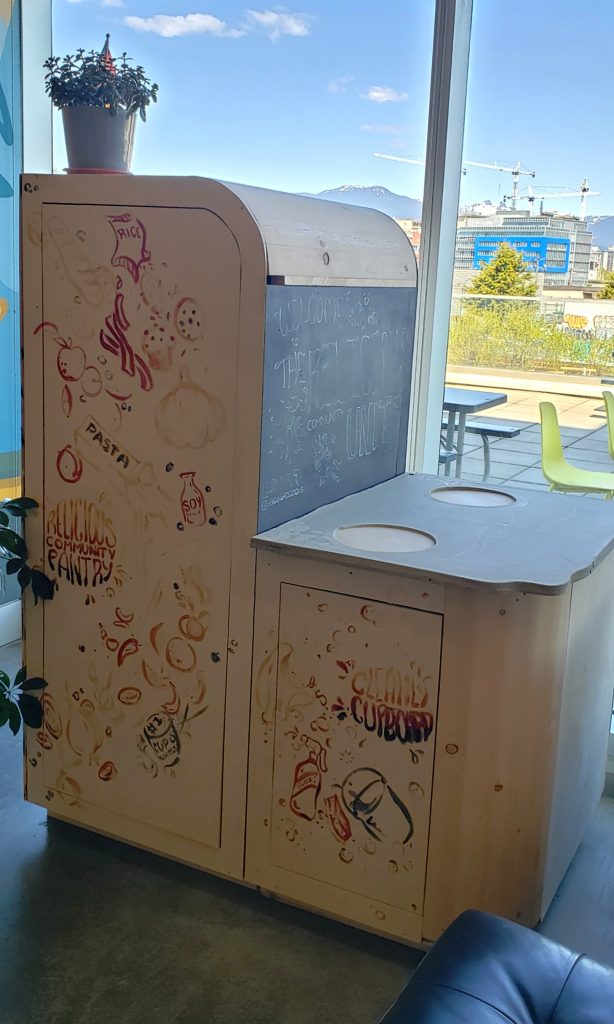
The final cabinet is settled in it’s home in the Student Union Lounge. The countertop is concrete poured on reclaimed tile, with a water-jet feature corner and solid-wood cutting board inserts. The illustrations are done on the raw wood with an egg tempera paint—coloured with natural dyes of brazil wood, terracotta, indigo + onion.
To everyone who has touched this project, thank you for the inspiration and encouragement in all it’s forms. This unit would not have happened without it’s community. I hope it serves everyone remaining at the school well and I look forward to seeing it go as far as I can before it passes to the next generation of university residents. :^)

